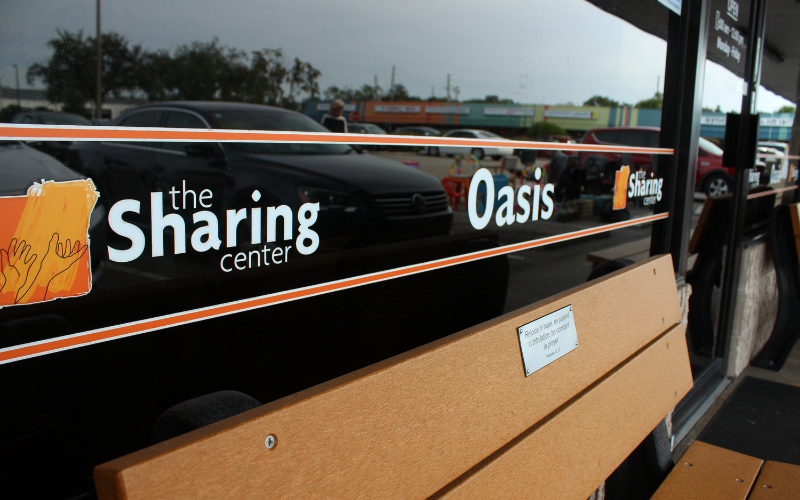
Stigmas of Homelessness: They’re All On Drugs
More Than What Meets The Eye
The Sharing Center’s hope is that every person- donor, volunteer, or staff, who encounters anyone on our campus- will meet them with the compassion and dignity they deserve.
That together, we would look at people experiencing homelessness, not as the world sees them. Yet as we do – full of hope and life; as a human, who needs the help of a gracious hand up. Someone with a story. Everyone, if not a mother or a father, is a daughter or a son. Everyone has experienced what it’s like to feel hungry, tired, scared, and hopeless.
The stories of families and individuals battling addiction are much more than what meets the eye. The Sharing Center challenges you, instead of looking at a person experiencing homelessness, and automatically placing a label on them, look at them with compassion and take action to be a part of their journey back to stability.
“We don’t criminalize homelessness. Rather, we look at it as a condition that someone is currently in, and there’s a reason why they got there. We try to refer them to the right services, whether it’s The Sharing Center or other services providers in our community. We want to change the trajectory that the person is currently on by addressing the underlying conditions that led to, or currently negatively impact, their current state and stabilize their life.” Dan Purcell, Chief of Law Enforcement for Seminole County states in an interview.
How Substance Abuse Affects Homelessness
The National Coalition for the Homeless summarizes it perfectly, “The truth is that a high percentage of homeless people do struggle with substance abuse, but addictions should be viewed as illnesses and require a great deal of treatment, counseling, and support to overcome. Substance abuse is both a cause and a result of homelessness, often arising after people lose their housing.”
According to the Substance Abuse and Mental Health Service Administration (SAMHSA), an estimated 64% of homeless people had drug use problems in the past month, 38% had an alcohol use disorder, and 39% had some form of mental health problems.
Substance abuse can often be a cause of homelessness. Addictive disorders grip people’s lives. They disrupt relationships with family and friends and often cause people to lose their jobs.
Seminole County & Homelessness
When asked about Seminole County, the homeless population, and how each are impacted by drug addictions, Chief of Law Enforcement, Dan Purcell states, “In particular with drug and alcohol addictions, we try to take a slightly different approach than dealing with what we have in front of us. We like to look at the individual: what are the underlying conditions that led them to homelessness? Was it child abuse, sexual abuse, physical or verbal abuse, a broken homelife, other trauma, etc.? Whatever the reason is, they just didn’t have the support they needed and made some negative choices that led them to his point.”
“I think that people just need to remember that everyone has a story, whether you are homeless or not, there are good times in life and bad times. When we look at a homeless individual- their path could be very bright at some points in their life and dark at others. They’re human too, and no different from anyone who is living under a roof. We have to create stability for them and help them when we can. It’s unfair to place a stigma or categorize homeless individuals as people who are not worthy of help. They’re always worthy of help, and that’s what we, as law enforcement officers, took an oath to do.”
